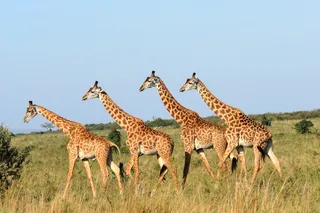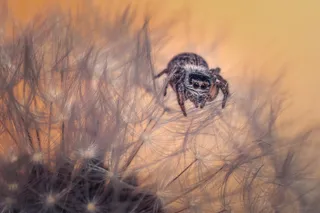Photo: flickr/Tambako the Jaguar
Drummers may have a reputation as being the wildest members of a band, but apparently they have nothing on chimpanzees. In this study, the authors describe “an episode of spontaneous drumming” by a captive chimp named Barney that has many properties usually associated with human drumming. Barney’s instrument of choice was an overturned bucket, and his performance was unique particularly because of the evenness of his drumming (prior to this study, researchers thought that non-human primates did not display this kind of musicality). Click below to listen to Barney’s full album!
Chimpanzee drumming: a spontaneous performance with characteristics of human musical drumming.
“Despite the quintessential role that music plays in human societies by enabling us to release and share emotions with others, traces of its evolutionary origins in other species remain scarce. Drumming like humans whilst producing music is practically unheard of in our most closely ...













